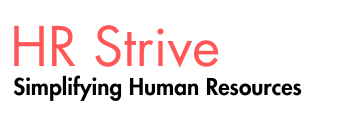The Strategic Role of HR
The strategic role of HR is to ensure that all HR activities and processes are in sync with the organization's overarching business strategy. This alignment helps create a more robust and strategically focused organization.
HR's strategic responsibilities include:
Contributing to organizational strategy: HR professionals are part of the team that designs the company's overall strategy.
Aligning HR with the organizational strategy: The HR department's own plan must directly support the company's main goals.
Supporting other departments' strategies: HR helps other business units achieve their strategic objectives.
This role demands that HR professionals adopt a broader perspective that includes global, long-term, and forward-thinking considerations. When an organization explores new opportunities, HR provides a crucial perspective on the human element of any strategic decision.
The Administrative Role of HR
This role primarily involves managing compliance and keeping accurate records. These responsibilities are often called "transactional activities," but they can be handled in a strategic way.
Using technology for data analysis: Tools like Human Resource Information Systems (HRIS) allow HR to collect and analyze data. This data can then be used to provide insights to company leaders, making HR a valuable consultant. When this data is integrated into a company-wide management tool, it can be shared more easily, allowing HR to identify trends and plan for the future.
Using technology to reduce administrative time: HRIS systems are used to manage employee records and create compliance reports. Other software, such as applicant tracking or project management tools, boosts productivity. In many companies, employees and managers can handle their own administrative tasks, like updating personal information or changing benefits, through self-service portals.
Focusing on core capabilities: Tasks that are not central to HR's strategic mission can be outsourced. For example, a third-party vendor can handle payroll, benefits administration, or background checks. This allows HR to concentrate on more strategic work. However, this means HR professionals need skills in managing outsourcing, such as negotiating contracts and monitoring vendor performance.
Operational Role of Human Resources
HR's operational responsibilities encompass the daily management of workforce-related matters—recruitment, conflict resolution, internal communication, and supporting employee well-being. HR also serves as a partner to managers, offering guidance to improve employee performance and engagement.
To elevate these daily operations, HR must ensure they contribute to the larger strategic direction of the organization:
-
Facilitating knowledge sharing: HR can implement systems that preserve institutional knowledge and ensure that expertise is accessible across departments. Highlighting where critical talent and skills are located within the organization helps leaders deploy them strategically.
-
Strategic hiring and capability building: By conducting thorough job evaluations and aligning roles with actual competencies, HR can attract and nurture talent that propels the organization toward its goals.
-
Designing performance-driven rewards: Effective incentive programs should reinforce behaviors that align with desired outcomes—such as enhancing customer satisfaction or closing high-value sales—rather than rewarding outdated or counterproductive metrics.
-
Strengthening employee engagement: Initiatives such as leadership development, improved managerial communication, and fostering team autonomy contribute to higher motivation and retention. Transitioning from directive supervision to a coaching-style leadership model can help cultivate a culture of trust and empowerment.

No comments:
Post a Comment